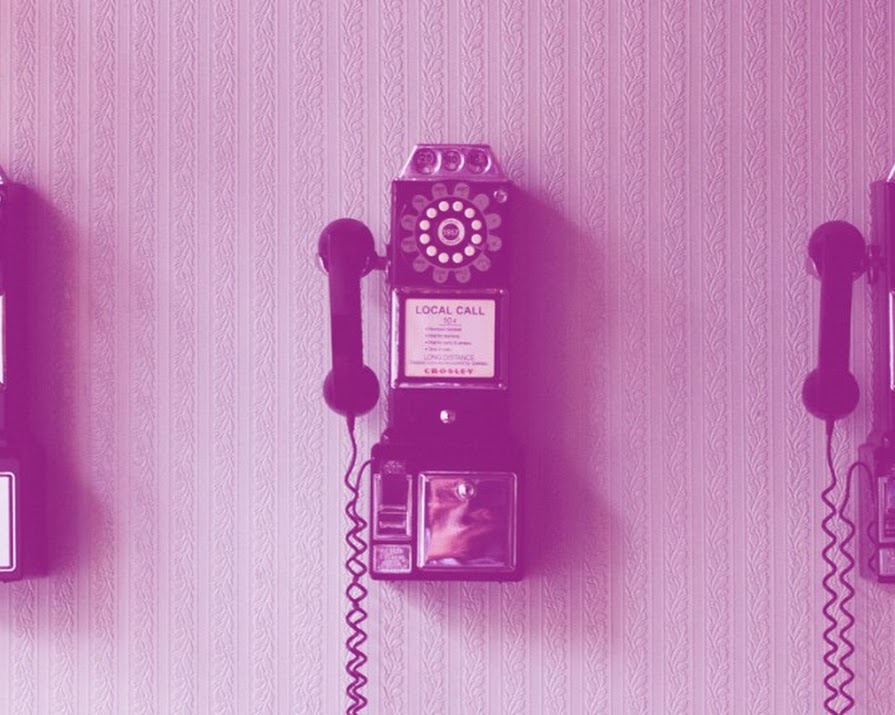
By Niamh ODonoghue
12th Oct 2017
12th Oct 2017
When the internet is your day-to-day bread and butter, the idea of digitally getting away from it all sounds idyllic – in theory.
I am – in all aspects of the words – a digital native. I Instagram nine times a day, tweet up to 15 times an hour, and post to Facebook every few minutes. I’m in tune with trends and breaking news, I chat with friends, I research, I sell. So when this was taken from me without warning, my internal cogs spasmed and jammed, and I could feel my body fall into a deep, sweat-induced anxiety attack.
Working online, there’s an unspoken responsibility to be ‘always on’. We’re not required to be, but it’s an implicit expectation that comes with working in the ether where information never, ever stops flowing. Our kind of people are ‘on’ from the second we wake up, until long after we should be asleep. And for the most part, we love the hyperactivity that comes with the internet and the non-stop tailgating from one news article to the next.
My phone took a short-drop-and-sudden-stop last week. For the initial seconds afterward, I didn’t think much of it and looked from the screen on my phone to the one on the television. Cue to less than two minutes later and my thumb frantically pressing the home button to check my notifications. In a world where we touch our phones 2,617 times a day, a part of my psyche had already forgotten that it had dropped only minutes before.
It was as if a limb had been removed from my body, leaving me with a heightened’sense of awareness and presence. It felt like, what I can only describe as, being physically plugged out of the internet realm and into reality. I should have grasped the chance to have an early night and enjoy lying in the darkness – free from the omnipresent blue light of my phone, but I was too concerned with panicking over not waking up for my bus on time, not being able to check emails for the fifty-millionth time before bed, or post an insignificant image to my Instagram feed. I became so aware of the total darkness and silence without my phone that I plugged in the house phone (do people still use house phones??) to soothe my nerves (and make a call to someone if there was an emergency).
Phone separation anxiety – or Nomophobia – is a growing condition among everyone, not just digi-natives like me. Symptoms include general feelings of being alone or secluded, but what’s more worrying is that the condition can lead to an increase in heart rate and blood pressure; resulting in bigger health problems down the line (you can do an online test to see if you have it).
Fifty-five was the total number of hours I was without my phone, during which my mental health issues peaked at new heights. My body has become so conditioned to pressing buttons and the subtle movement of my wrist and hand that, when my phone was gone, it was like I had developed a tic associated with something like Tourette’s Syndrome. My sleep pattern suffered, I was lethargic and I felt on-edge if I was in the company of other phone users. I’m a logical, independent young woman, yet during those phoneless hours, an object no bigger than a standard block of cheese impacted my mental and physical wellbeing to the point where I didn’t leave the house unless absolutely necessary.
We know the importance of taking care of our mental health but we’re too scared to fall off of the grid, so how do we strike the balance? In hindsight, and now tacked with a fully-functioning phone, I’m glad I had a weekend of sweaty, panicked FOMO because it allowed me to see how habituated my life has become by the internet and all of its wrath. I learned that my attention span is considerably worse than it used to be. I’m more aware of checking my phone and ask myself “do you really need to check that?”, more often. I’ve even started turning my phone on to ‘do not disturb’ mode every evening around 8pm.
If all else fails, I could take a stab at Gwyneth Paltrow’s advice and go 6-8 weeks without any technology (yeah right Gwen). Or better yet, get my parents to build me a €44,000 digital-free treehouse to entice me to stay offline.























